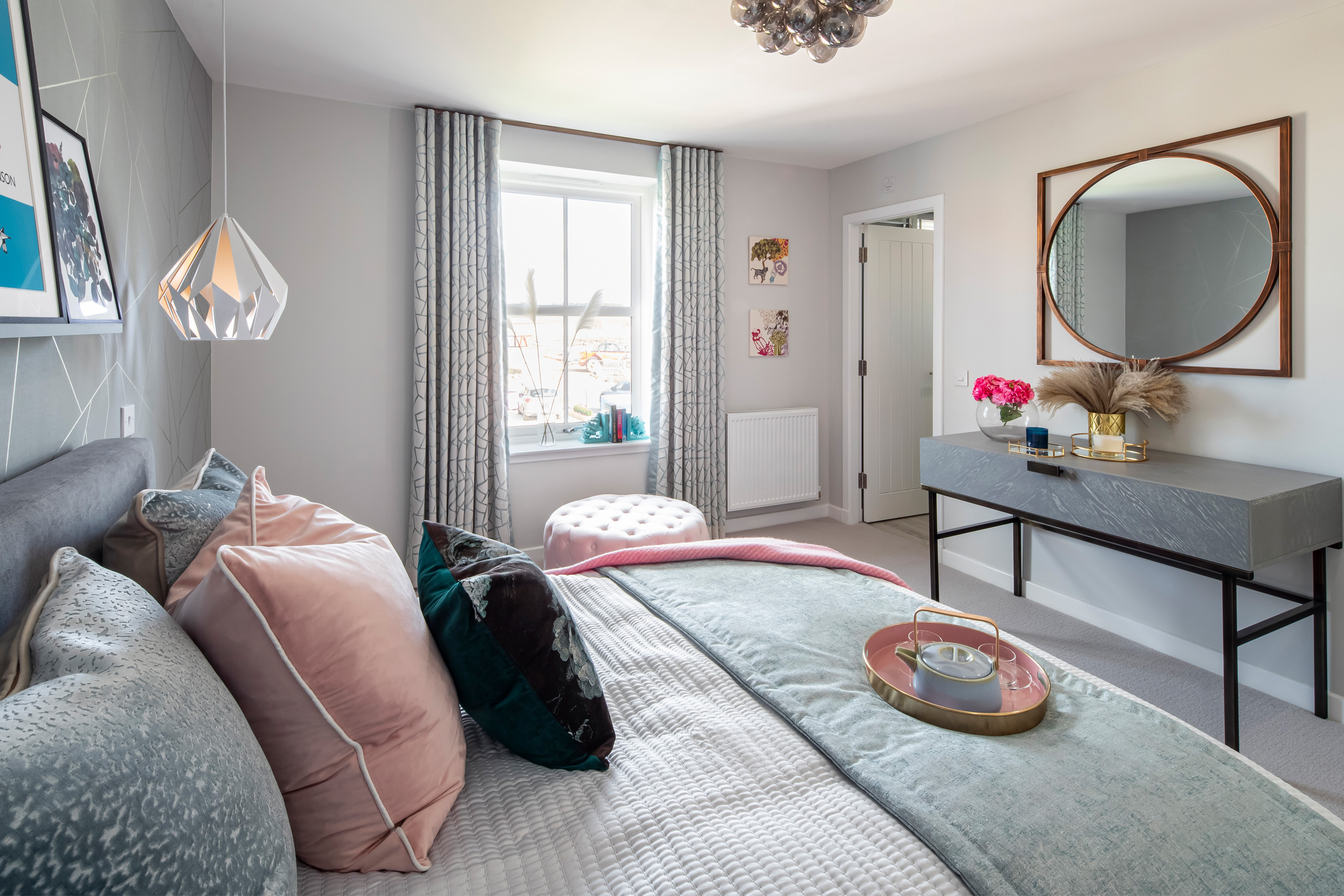How to de-stress your home

Over the last 18 months, our homes have gone from being a sanctuary to being the centre of our world. We’ve exercised in garages, sun-worshipped in gardens and become intimately familiar with every corner of our houses. Above all, we’ve spent unprecedented amounts of time glued to screens, whether studying, working, shopping or relaxing.
While the pandemic’s impact on daily life is slowly fading, the mental health ramifications will take many years to resolve. Prolonged levels of elevated stress are common on any list of post-pandemic health concerns. Stress is a pernicious and debilitating condition, and it’s vitally important to do everything possible to minimise it around the home.
Work
Your home should always feel like a sanctuary, rather than an auxiliary office. Try to create a dedicated workspace, and have one room where emails and voicemails can’t encroach. Fold-down wall-mounted shelves take up no floor space, yet they’re great for balancing a laptop on. Invest in a comfortable office chair with back support and armrests, to avoid physical fatigue compounding mental tiredness. Set specific periods for work, and don’t start checking emails in the evening – it’s a slippery slope.
Rest and play
Ensure key apartments are soothing rather than stimulating. Many of us have redecorated in the last year, and calming pastel colours are better than vibrant shades or sharp contrasts like striped wallpapers. This is particularly important in bedrooms and bathrooms, where soft hues and the sound of a running shower immediately begin to wash away excess stress. Cleaning is nobody’s idea of fun, but a dust- and clutter-free house is pleasing to behold. It’ll also reduce allergies, while a freshly changed bed tends to encourage healthier sleep.
Sensory input
There are numerous products designed to reduce stress levels around the home. Scented candles and reed diffusers stimulate our smelling senses, with sleep sprays making pillows feel more welcoming. Ambient soundtracks played at low volumes provide white noise in welcome contrast to smartphone notifications. Draw in as much natural daylight as possible to banish stress-inducing dark corners, and use mirrors to reflect brightness. Strategic lighting also helps, from colour-changing mood lamps to serotonin-generating full spectrum bulbs.
Introduce nature
Plants and flowers are inherently soothing, and tending to them focuses the mind on simple activities. If you have pets, many species of plant can be poisonous, so switch to artificial plants or harmless sunflowers and roses. Even throwing open the windows and allowing fresh scents to waft in reduces stress levels. Creating a home for nature in the garden (bug boxes, bird baths, etc) is mentally rewarding, and you can invest as much or as little time as schedules permit. For flat dwellers, window boxes and bird feeders are good investments.
Reduce electronic device usage
Our reliance on computers and phones has burdened as well as liberated us, with anxiety and stress skyrocketing since March 2020. When you must use electronic devices, engage night/dark mode to reduce screen glare, and take regular breaks. Use an Alexa or Spotify account to play meditation soundtracks rather than high-tempo songs which elevate your resting pulse. Keep smartphones out of the bedroom at all costs – buy an alarm clock, and ensure social media platforms don’t diminish the quantity or quality of sleep you get.
Back to Latest Posts




